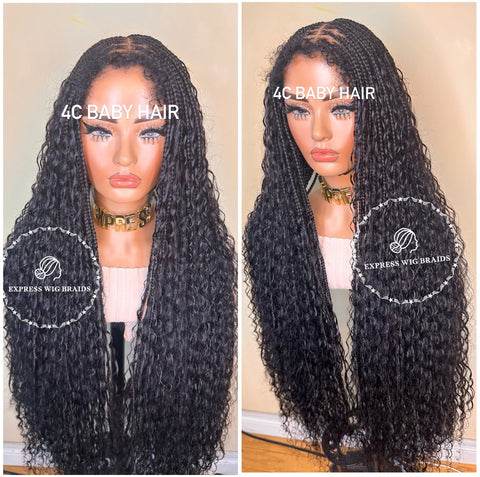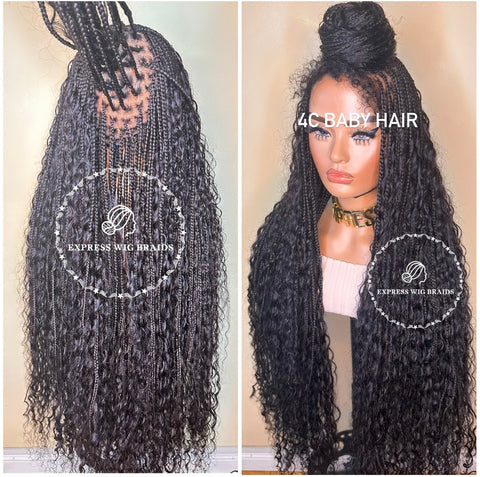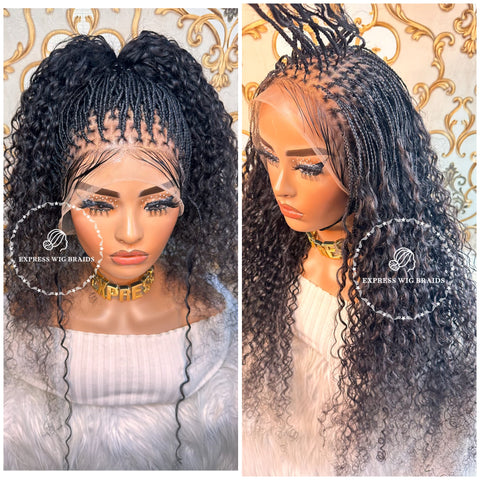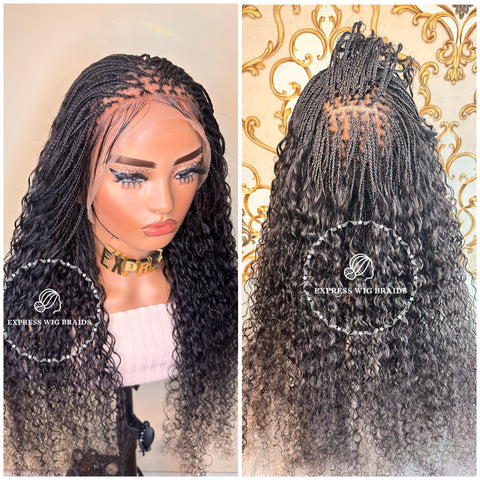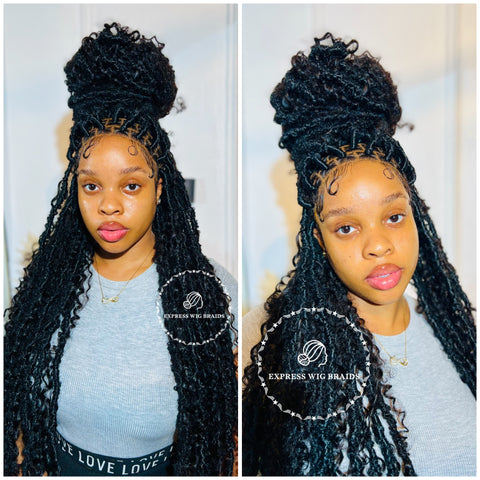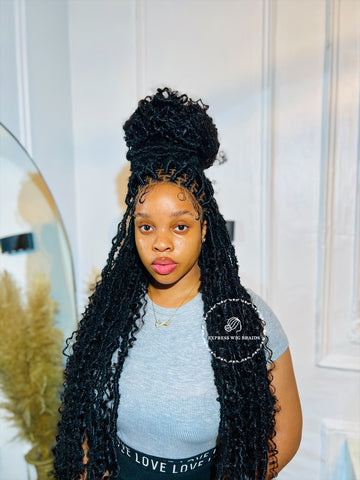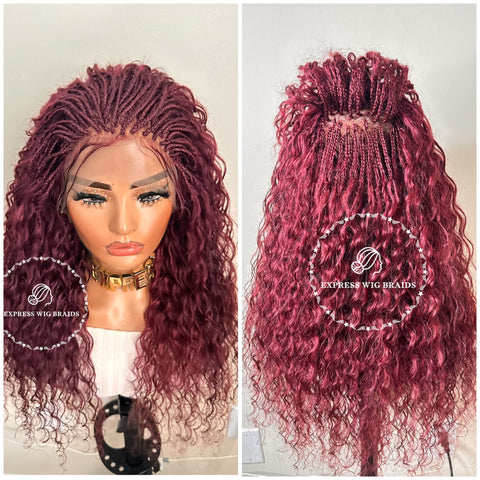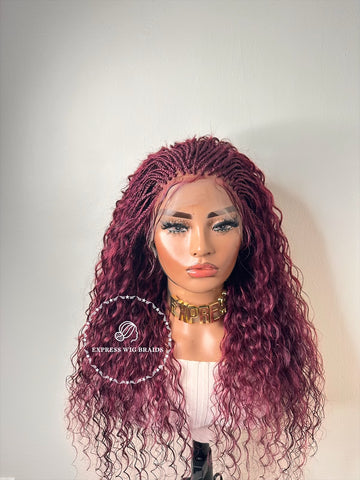Black History Moment with Express Wig Braids

Thank you for joining us on this special Black History Month interview! Today, we're honored to have Attorney Amber Williams, a representative from Express Wig Braids, joining us to share insights on the intersection between Black history and the beauty industry, as well as the role that their brand plays in honoring Black history and culture.
Q1:
Interviewer: To start, could you share a bit about the historical significance of braids?
Interviewee: Definitely! Throughout history, braids have played a significant role in the lives of African and African-descended people. During the transatlantic slave trade, enslaved Africans often braided each other's hair as a form of communication and bonding.
Q2:
Interviewer: Can you tell us a bit about the inspiration behind Express Wig Braids and its connection to Black history and culture?
Interviewee: Absolutely. At Express Wig Braids, we draw inspiration from the rich cultural heritage of African hairstyles, including traditional braided styles passed down through generations. Our brand is deeply rooted in appreciating Black beauty and the diverse cultural traditions that shape it.
Q3:
Interviewer: That’s commendable. Despite the suppression experienced by the enslaved Africans, what can you say about the evolution of braided wigs?
Interviewee: This is pure resilience and adaptation. Despite the forced assimilation and cultural suppression experienced by enslaved Africans, braided hairstyles persisted as a symbol of resilience and cultural identity. Over time, these hairstyles evolved, and we now have different braided wig styles, drawing inspiration from different African cultures.
Q4:
Interviewer: Is there a particular purpose for braids during the transatlantic slave trade? Kindly share with us.
Interviewee: During the transatlantic slave trade, enslaved Africans often braided each other's hair as a form of communication, and bonding. Throughout history, braids have played a significant role in the lives of African and African-descended people. They also protect from the elements and serve as a way to maintain hair health.
Q5:
Interviewer: This is interesting. Braided hairstyles have been an integral part of African culture for centuries; is there something special they carry?
Interviewee: Of course. Different braiding styles have significant cultural and symbolic meanings in diverse African communities. These hairstyles have been passed down through generations, thriving as a means of cultural expression and identification.
Q6:
Interviewer: That's impressive. Can you tell us how Express Wig Braids honors the rich legacy of Black history within its products?
Interviewee: We honor Black history with our variety of braided styles that are inspired by many African cultures and traditions. Through our product designs, we aim to highlight the beauty and versatility of braided hairstyles while also recognizing their historical significance.
Q7:
Interviewer: That’s absolutely great! Do you see braided hairstyles as a symbol of Black pride and identity? Specifically, braided wigs, and other traditional African hairstyles.
Interviewee: Braided hairstyles have long symbolized Black pride and perseverance. They represent a connection to African roots. Braided wigs provide a practical and accessible option for people to display their cultural identities and proudly embrace their heritage.
Q8:
Interviewer: What can you say about the correlation between Black history and braided wigs?
Interviewee: In essence, the correlation between Black history and braided wigs emphasizes the enduring legacy of African cultural heritage, as well as how it continues to shape and inspire modern expressions of beauty and identity.
Q9:
Interviewer: What’s the cultural heritage of braided hairstyles?
Interviewee: Braided hairstyles have been a part of African culture for generations, with distinct braiding techniques and styles having strong cultural and symbolic meanings in various African cultures. These hairstyles have been passed down through generations, functioning as a means of cultural expression and identification.
Q10:
Interviewer: That’s fascinating. As we celebrate Black History Month, what message would you like to share with our audience?
Interviewee: Black history is more than just a month-long celebration; it is an essential aspect of our common human experience that ought to be commemorated and respected all year. I would like to encourage everyone to use this occasion to learn about and honor Black people's contributions to history, culture, and society.
Interviewer: Thank you so much Barrister Chiga, for sharing your valuable insights with us on Black History Moment. Learning more about Express Wig Braids and its commitment to celebrating Black history and culture has been a wonderful time with you.
Interviewee: It’s been a pleasure. Thank you for having me.
Throughout history, braiding skills have been passed down through generations, with each style holding its symbolism and significance. From intricate cornrows to exquisite box braids, these hairstyles have served as a means of expressing identity, creativity, heritage, and uniqueness.
Now with braided wigs serving as a means of celebrating and preserving African cultural heritage, individuals can easily showcase intricate braided styles without the commitment of traditional braiding techniques, offering versatility and convenience.
To round up this session, we have 3 amazing facts about Black History Month for you. Stay glued!
Amazing Facts on Black History Month
Are you ready? These facts highlight the significance of Black History Month in recognizing and honoring African Americans' rich cultural legacy and societal accomplishments.
- Black History Month originated as "Negro History Week" in 1926, created by a pioneering African American historian and educator, Dr. Carter G. Woodson. In 1976, the celebration was extended to a month long.
- February was chosen as the month to commemorate Black History Month because it coincides with the birthdays of Abraham Lincoln and Frederick Douglass, two leaders who played key roles in African American history.
- Black History Month is most often associated with the United States, but it is also observed in Canada, the United Kingdom, and other nations. However, the timing varies, with other countries commemorating it in October.
As we continue to commemorate Black History Month, let us strive to elevate and honor the contributions and experiences of Black people and communities.
If you are new to the world of braided wigs, here is a beginner's guide to wearing a braided wig.
Braided wigs enable people from various backgrounds to embrace and express African culture and identity. They contribute to greater representation and inclusivity within the beauty industry, promoting different standards of beauty and self-expression.




